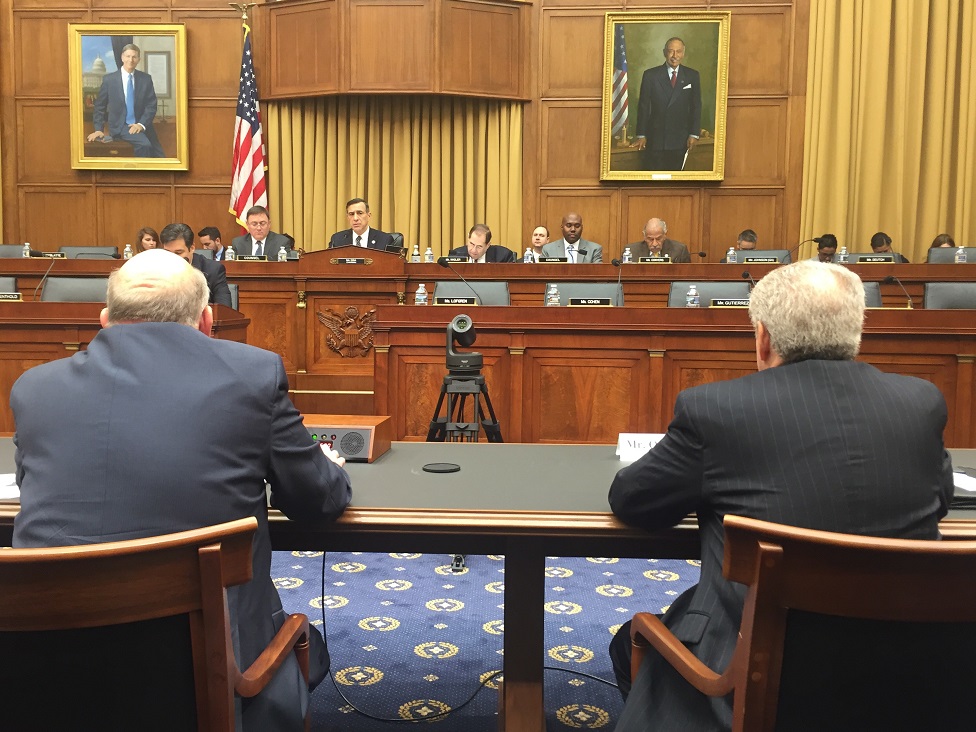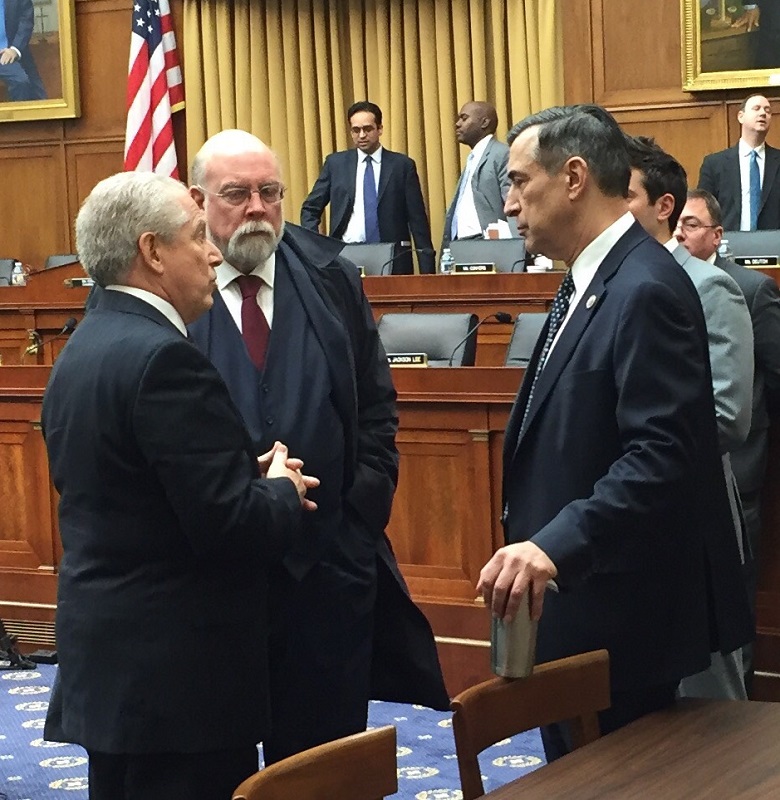House Panel Indicates Support for Fixes to Federal Judiciary
 Agreement on judicial wellness initiatives, a code of conduct for the Supreme Court and increased broadcast access to federal appeals
Agreement on judicial wellness initiatives, a code of conduct for the Supreme Court and increased broadcast access to federal appeals
A bipartisan group of members of the House Judiciary Committee’s Subcommittee on Courts, IP and the Internet took the opportunity of the first federal courts oversight hearing of the 115th Congress to criticize the federal judiciary for its lack of openness and suggest commonsense reforms that would counteract the declining faith in the courts system.
“Though trust in government is at an all-time low, there are numerous immediate steps the judiciary could undertake to demonstrate that it’s fulfilling its constitutional mandate with integrity,” Fix the Court executive director Gabe Roth said. “Since the third branch has declined invitations to open up on its own, Congress is well within its powers to pass basic reforms that would increase the judicial transparency and accountability, and I’m pleased so many were highlighted in the hearing in such a bipartisan way.”
Among the first topics discussed was the issue of judicial wellness, where federal judges with life tenure are not getting the mental and physical checkups and support they need to stay sharp as they age. “We cannot simply, say, wait to impeach a judge from time to time,” Subcommittee Chairman Darrell Issa (R-Calif.) said in his opening statement. “We recognize that judges grow old and overseeing whether or not the (judicial misconduct and disability) system is properly maintained to ensure every judge is capable of doing their job when they take the bench” is of concern.
In that vein, the committee heard testimony from Indiana Law School Prof. Charles Geyh, who noted that Supreme Court justices are the only nine judges of the tens of thousands nationwide who are not bound to a formal code of conduct. Geyh said: “Codes of judicial conduct proliferated in the Watergate era amid pervasive suspicion of government that has not dissipated in the ensuing 40 years. It would be unfortunate if the only judges in the United States who see no need for a code of ethics were those on the nation’s most powerful tribunal.” Members from both parties seemed to agree.
 Finally, members noted how this hearing was coming soon after the audio livestream in Trump v. Washington captured an unprecedented amount of national attention for an audio-only appellate hearing. “Clearly, there’s great interest in wider access to court proceedings,” Ranking Member Jerrold Nadler (D-N.Y.) said. “I see no reason the public should be prevented from witnessing the other important cases considered in federal appellate courts.” Nadler also mentioned that just yesterday he reintroduced the Eyes on the Courts Act, which would require video access to all federal appellate hearings, including those at the Supreme Court.
Finally, members noted how this hearing was coming soon after the audio livestream in Trump v. Washington captured an unprecedented amount of national attention for an audio-only appellate hearing. “Clearly, there’s great interest in wider access to court proceedings,” Ranking Member Jerrold Nadler (D-N.Y.) said. “I see no reason the public should be prevented from witnessing the other important cases considered in federal appellate courts.” Nadler also mentioned that just yesterday he reintroduced the Eyes on the Courts Act, which would require video access to all federal appellate hearings, including those at the Supreme Court.
National Press Photographers Association General Counsel Mickey Osterreicher (left, with Prof. Tom Bruce of Cornell Law and Rep. Issa), who also testified today, said: “It cannot be overstated that in this current political climate, when democratic principles are being tested and long-established forms of journalism and mass communications are being questioned, opening courts to electronic coverage is an essential and directly deliverable medium for providing the public with the ability to see and hear that justice is being done, renewing confidence in governmental integrity and creating improved transparency as to how decisions are made at all steps in the judicial process, especially in the Supreme Court.”
A video of the full hearing is available at https://judiciary.house.gov/hearing/judicial-transparency-ethics.